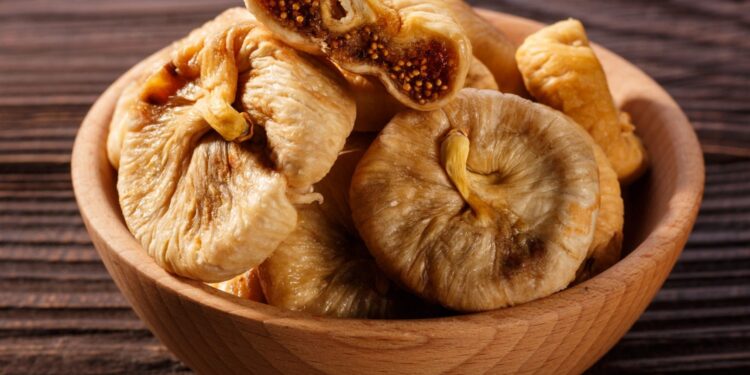Are you tired of worrying about weak bones and brittle joints? Well, fret no more! We have an exciting secret to share with you that will leave you feeling strong, confident, and ready to take on the world. Introducing the mighty Anjeer – a natural wonder packed with incredible nutrients that can revolutionize your bone health game. In this blog post, we will delve into the power of Anjeer in promoting strong bones and uncover how this small yet potent fruit can make a big difference in your overall well-being. So get ready to discover the untapped potential of Anjeer and embark on your journey towards building unbreakable bones!”
Table of Contents
Introduction to Anjeer and its Health Benefits
Anjeer, also known as figs, is a delicious and nutritious fruit that has been used in traditional medicine for centuries. Native to the Mediterranean region, anjeer is now widely cultivated around the world and has become a popular addition to many diets due to its numerous health benefits.
This small yet mighty fruit is packed with essential vitamins, minerals, and antioxidants that can help improve overall health and well-being. But what makes anjeer stand out among other fruits is its ability to promote strong bones.
In this section, we will dive into the various health benefits of anjeer specifically related to bone health. From strengthening bones to preventing osteoporosis, here’s everything you need to know about this superfood.
Understanding Bone Health and the Importance of Strong Bones
Bone health is often overlooked and underestimated, but it plays a crucial role in overall well-being. Our bones are the framework that supports our body and protects vital organs. They also serve as a storage site for minerals such as calcium and phosphorus, which are essential for various bodily functions. Therefore, having strong bones is important not just for physical strength and mobility but also for maintaining good overall health.
In order to understand bone health, we must first understand the structure of bones. Bones are made up of living tissue called bone cells, which constantly break down old bone tissue and replace it with new ones. This process is known as bone remodeling and is necessary to keep our bones strong and healthy.
The two main types of bone cells responsible for this process are osteoblasts (cells that build new bone tissue) and osteoclasts (cells that break down old or damaged bone tissue). When there is an imbalance between these two types of cells, it can lead to weakened bones and conditions such as osteoporosis.
Osteoporosis is a condition where the bones become weak and brittle, increasing the risk of fractures. It affects millions of people worldwide, especially women over the age of 50. While aging is a major risk factor for osteoporosis, other factors such as genetics, hormonal changes, lifestyle habits like smoking or excessive alcohol consumption, certain medications, and inadequate nutrient intake can also contribute to its development.
How Anjeer Promotes Bone Health
Anjeer, also known as figs, is a delicious and nutritious fruit that has been used for centuries in traditional medicine for its numerous health benefits. Apart from being a great source of dietary fiber and essential vitamins and minerals, Anjeer also plays a crucial role in promoting bone health. In this section, we will explore the various ways in which Anjeer helps strengthen our bones.
- Rich in Calcium:
One of the main reasons why Anjeer is considered beneficial for bone health is its high calcium content. Calcium is an essential mineral that makes up the structural component of bones and teeth. A deficiency of calcium can lead to weakened bones, making them more prone to fractures and osteoporosis. Including Anjeer in your diet can help meet your daily calcium needs, especially for individuals who are lactose intolerant or follow a vegan diet. - Contains Vitamin K:
Anjeer is also a good source of vitamin K – another important nutrient necessary for maintaining strong bones. Vitamin K plays a vital role in bone formation by helping the body produce osteocalcin (a protein found in bones). It works together with calcium to maintain bone density and prevent fractures. - High Potassium Levels:
Potassium is an electrolyte that helps regulate various bodily functions, including maintaining healthy bones. Low potassium levels have been linked to poor bone density and increased risk of fractures. Anjeer contains high levels of potassium, which supports the absorption and retention of calcium in the body.
Other Health Benefits of Anjeer, including Weight Loss and Heart Health
Aside from promoting bone health, anjeer (also known as figs) offers a range of other health benefits. These sweet and juicy fruits are packed with essential nutrients that can improve overall wellness, including weight loss and heart health.
- Weight Loss:
Anjeer is a great addition to any diet for those looking to shed some pounds. It is low in calories and high in fiber, making it a perfect snack option for those trying to manage their weight. The high fiber content of anjeer helps keep you feeling full for longer periods, reducing the urge to overeat or snack on unhealthy foods. Moreover, the natural sugars present in these fruits provide a quick energy boost without causing a spike in blood sugar levels.
Additionally, anjeer contains prebiotic fibers that promote healthy digestion by nourishing beneficial gut bacteria. This can lead to better absorption of nutrients from food and improved metabolism, aiding in weight loss efforts.
- Heart Health:
The heart-healthy benefits of anjeer come from its rich potassium content. Potassium is an essential mineral that plays a vital role in regulating blood pressure levels. It works alongside sodium to maintain fluid balance within the body and lower blood pressure. High blood pressure can increase the risk of heart disease and stroke; therefore, incorporating potassium-rich foods like anjeer into your diet can help protect against these conditions.
How to Incorporate Anjeer into Your Diet: Recipe Ideas and Tips
Anjeer, also known as figs, is a delicious and versatile fruit that has been used for centuries in traditional medicine to promote bone health. It is packed with essential nutrients such as calcium, potassium, magnesium, and phosphorus which are all important for building strong bones. In this section, we will explore some creative ways to incorporate anjeer into your diet to reap its benefits for bone health.
- Anjeer Smoothie Bowl:
One of the easiest ways to include anjeer in your diet is by adding it to your morning smoothie bowl. Simply blend together frozen bananas, almond milk, fresh spinach leaves and a few pieces of anjeer until smooth and creamy. Top it off with some chopped almonds and additional slices of anjeer for added texture and flavor. - Fig Energy Balls:
For a quick on-the-go snack that’s packed with bone-strengthening nutrients, try making fig energy balls. In a food processor, combine dried figs (soaked in warm water for 10 minutes), rolled oats, almond butter, chia seeds, and vanilla extract until well combined. Roll the mixture into bite-sized balls and store them in the fridge for a convenient snack anytime. - Oven-Roasted Chicken with Figs:
Figs can also be used in savory dishes such as oven-roasted chicken with figs. Marinate chicken breasts or thighs in a mixture of olive oil, lemon juice, garlic powder and dried thyme before
Risks and Precautions when Consuming Anjeer
While anjeer is known for its numerous health benefits, it is important to be aware of potential risks and precautions when consuming this nutrient-rich fruit. Here are some important things to keep in mind when incorporating anjeer into your diet:
- Allergies: As with any food, there is a possibility of being allergic to anjeer. If you have a known allergy to figs or other fruits from the Moraceae family, it is best to avoid consuming anjeer or consult with a doctor before doing so.
- High sugar content: Anjeer is naturally high in fructose, which can make it unsuitable for individuals with diabetes or those trying to manage their blood sugar levels. It is recommended to consume anjeer in moderation and monitor your blood sugar levels closely if you have diabetes or other health conditions related to high sugar intake.
- Digestive issues: The high fiber content in anjeer may cause digestive discomfort such as bloating, gas, and diarrhea in some individuals, especially if consumed in large quantities. It is advisable to start with small amounts of anjeer and gradually increase your intake over time.
- Interactions with medication: Anjeer contains certain compounds that may interact with medications like blood thinners or cholesterol-lowering drugs. If you are taking any medication regularly, it is important to consult with your doctor before adding anjeer to
Conclusion: The Power of Anjeer in Building Strong Bones
In recent years, there has been a growing interest in alternative and natural methods for maintaining good bone health. One such superfood that has gained popularity is anjeer or figs. Known for their sweet taste and soft texture, these tiny fruits pack a punch when it comes to promoting strong bones.
Anjeer is rich in various essential nutrients that are crucial for the development and maintenance of healthy bones. They contain high levels of calcium, magnesium, phosphorus, and potassium – all of which are vital minerals for bone health. These minerals work together to strengthen bones, increase bone density, and prevent age-related bone diseases like osteoporosis.
Calcium is the most abundant mineral found in our bones and plays a crucial role in maintaining their structure and strength. It helps build new bone tissue while also repairing any damaged areas. Just one cup of anjeer contains around 120 milligrams of calcium – about 12% of our daily recommended intake.
Magnesium is another important mineral found in anjeer that works hand-in-hand with calcium to keep bones strong. It aids in the absorption of calcium into the bones and improves its retention rate. Additionally, magnesium helps regulate vitamin D levels in the body – another essential nutrient for promoting bone health.
Phosphorus is another mineral that makes up a significant portion of our skeletal system. It works with calcium to form hydroxyapatite crystals – the main component of bone tissue.


 Home
Home









